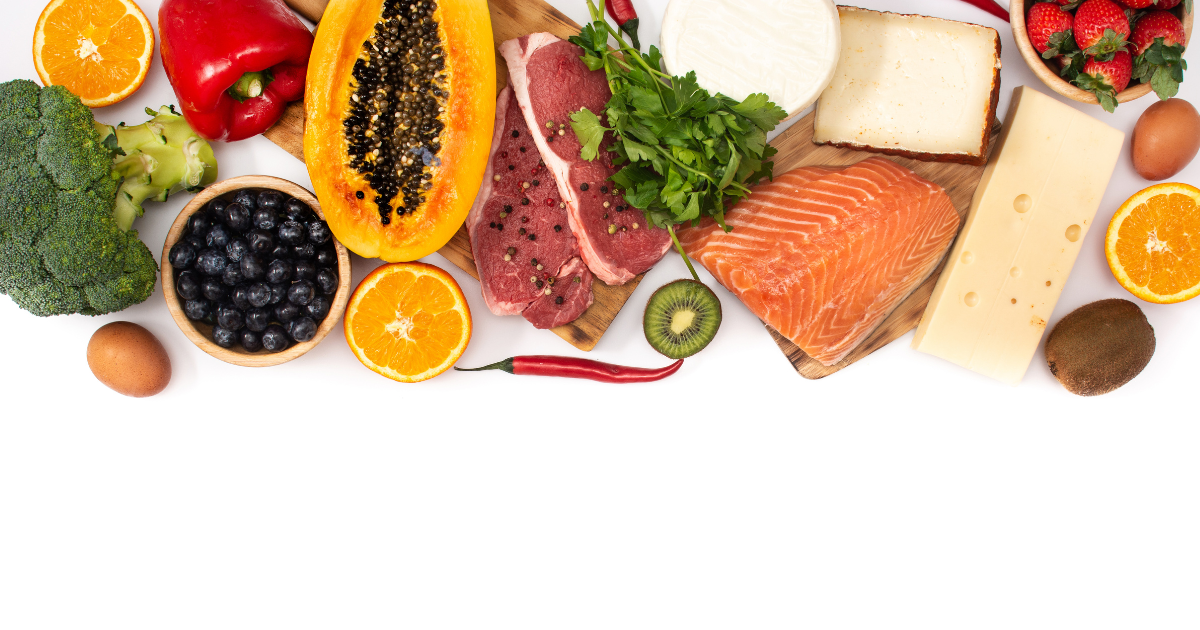
Vitamins are essential nutrients for the human body, and play a fundamental role in regulating many chemical reactions that are indispensable for life. In particular, vitamins are the vehicle for supplying energy to the body, also ensuring cell renewal.
With the only exception of vitamin D, vitamins are not synthesised by the body but must be taken in regularly through a healthy, balanced diet. Foods of plant origin are those with the most vitamins: this is why doctors and nutritionists insist on the fact that a portion of fruit and a portion of vegetables must be part of every meal.
What to eat to ensure correct vitamin intake
Fruit and vegetables, but not only: a varied, balanced diet that ensures the correct doses is important for guaranteeing a correct nutritional intake with all the essential vitamins for human well-being.
In detail, vitamins are divided into two categories:
- Water-soluble vitamins: these cannot be accumulated in the body, so have to be introduced regularly through the diet. They are found in foods such as meat, milk and dairy products.
- Fat-soluble vitamins: these, on the contrary, can be accumulated and are absorbed in particular by the skin and the liver. They do not have to be taken regularly, as the body stores them and then releases them when needed.
The easiest way to maintain a balanced diet is to follow the indications of the food pyramid (but in case of doubt, you should always consult a specialist).
The food pyramid is a concept that helps to understand the importance of the variety of food and the right quantity in our diet. The broadest section at the bottom shows that fruit and vegetables are the foods that can be consumed in the greatest quantities, and not by chance these carry fat-soluble vitamins.
Essential vitamins and where to find them
- Vitamin A: is found in yellow and orange fruit and vegetables, green-leaf vegetables, liver and dairy products.
- Group B vitamins: this is a vitamin complex with 8 vitamins, each with specific benefits. Generally, group B vitamins are found in sources of animal origin including meat, eggs, milk and cheese and fish, in addition to vegetable sources including pulses, avocado and yeast.
- Vitamin C: the main sources of vitamin C are almost all fruit and vegetables, including citrus fruits, red peppers, kiwi, broccoli, tomatoes, strawberries, melon, redcurrants and Brussels sprouts.
- Vitamin D: this vitamin is produced directly by our body through exposure to sunlight.
- Vitamin E: it is contained in cereals, nuts and green-leaf vegetables.
- Vitamin K: it is found above all in artichokes and green-leaf vegetables generally, as well as in fruit, cereals and dairy products.
Essential minerals and where to find them
The same goes for minerals: they are also essential for the well-being of the human body, and any deficiencies can cause serious health problems.
16 are considered essential, and are divided into two categories: macro-elements and micro-elements.
The first group (macro-elements) includes:
- Calcium: the main sources of calcium are milk and dairy products, but it is also found in sardines, mussels and oysters.
- Phosphorus: foods rich in phosphorus are those with a high protein content, including meat, fish, milk, eggs and pulses.
- Magnesium: foods rich in magnesium are all green-leaf vegetables, avocado, bananas, aubergines, soy, pulses, whole wheat cereals, oats, nuts, particularly pumpkin seeds, almonds, hazelnuts and peanuts.
- Sodium: an important mineral for ensuring the osmotic balance of our cells, and is found especially in kitchen salt.
- Potassium: the richest food sources of potassium are fruit and vegetables, particularly celeriac, Brussels sprouts, artichokes, sweet potatoes, cauliflower, azuki beans, beetroot, tomatoes, bananas, melon.
- Sulphur: is present in all protein-rich foods, from red meat to pulses, to fish, poultry, milk and, particularly, egg yolk.
The second group (micro-elements) includes:
- Iron: iron sources come from both animals (liver, beef, ham, bresaola, fish, shellfish and crustaceans) and plants (Brussels sprouts, spinach, cocoa, almonds, dried figs). The first are easily absorbed.
- Manganese: found in whole wheat cereals, whole grain rice and whole wheat bread, oat flour, buts, including hazelnuts and pecans, pulses, spinach, cabbage, pineapple, blueberries, clams, oysters and mussels.
- Iodine: the foods that contain most iodine are fish, crustaceans, milk and eggs.
- Zinc: it is found in fish and meat, cereals, pulses, nuts and pumpkin, sesame and sunflower seeds. It is also found in high percentages in yeast, milk, mushrooms, cocoa, walnuts and egg yolk.
- Copper: the foods rich in this mineral include nuts, crustaceans, liver, green-leaf vegetables and dark chocolate.
- Fluorine: the main food sources of fluorine are fish, shellfish, milk, meat and cheese.
- Chromium: chromium is introduced into the body through meat, whole wheat cereals, some fruits, including apples, banana and oranges, and some vegetables, such as broccoli.
- Selenium: foods containing the greatest amount of selenium include Brazil nuts, tuna, sardines, ham, prawns, beef, turkey, chicken and eggs.
How to integrate vitamins and minerals
Vitamin and mineral salt deficiencies can cause a range of disorders, depending on the type of deficiency. This is why an excellent supply of vitamins and minerals is indispensable for the well-being of the human body, and is the most effective solution for reducing the risk of lowering the immune defences.
Apportal® and Apportal® Vital are nutritional supplements with an immunomodulating function, formulated to integrate vitamins and minerals to stimulate the immune response during particularly debilitating periods, helping to avoid problems and diseases linked to their deficiency.
